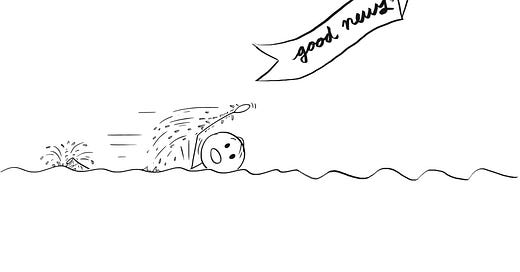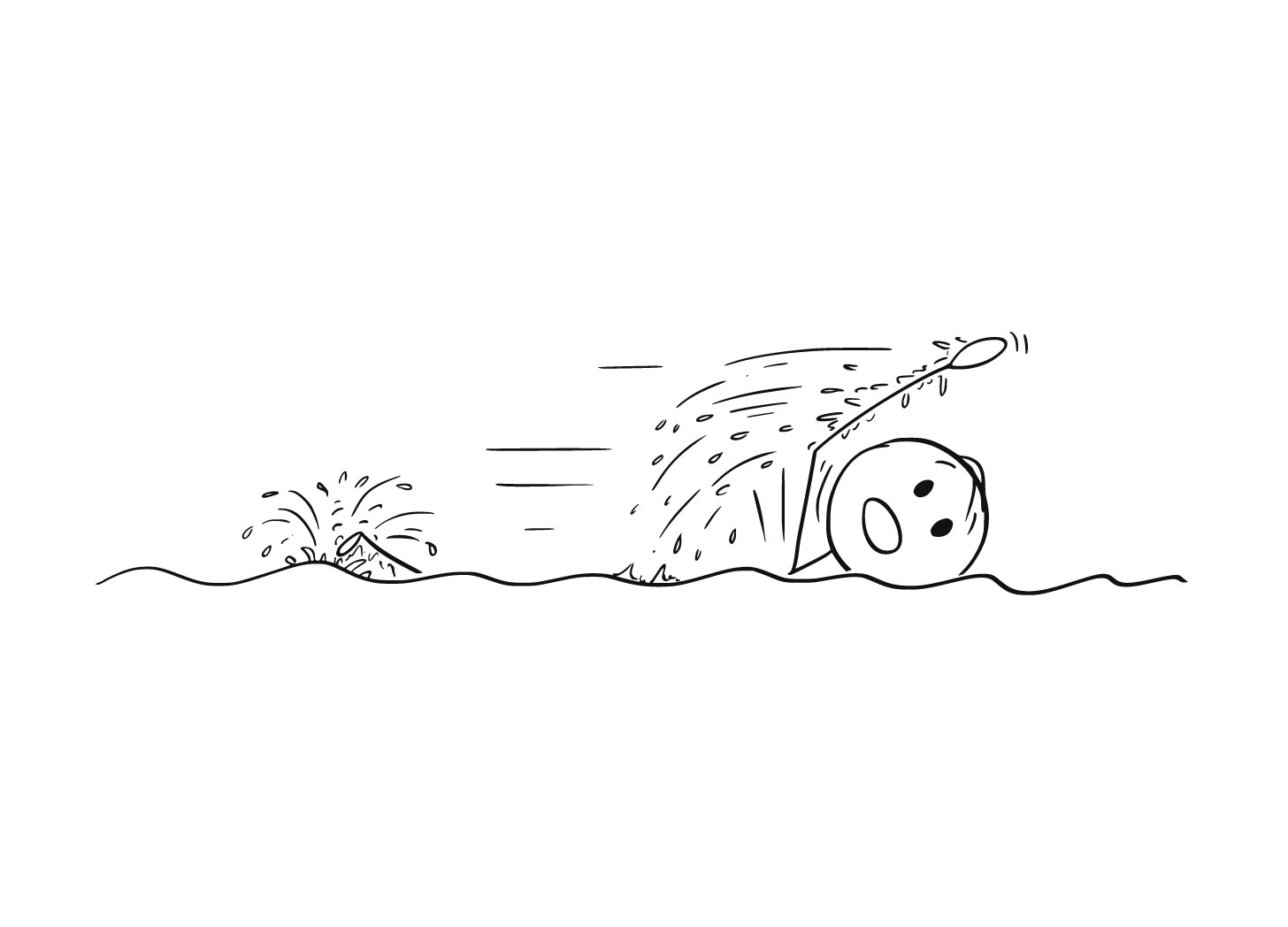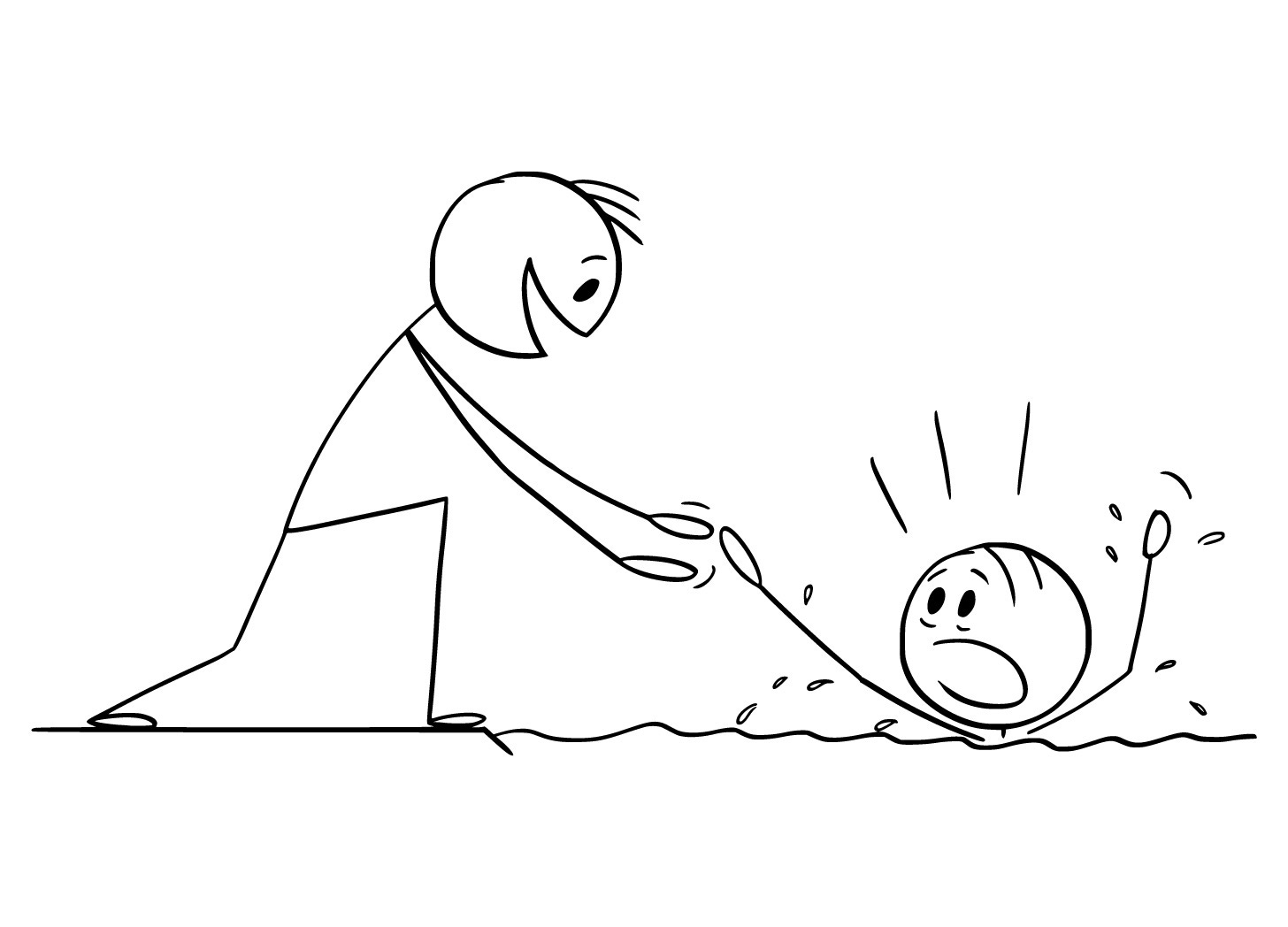How do you cope when you’re made to feel inadequate at work?
I’m talking about the performance review that feels passive aggressive. I’m talking about the “friendly reminder" email from your manager who’s “just circling back” about “that email I sent you two weeks ago.” I’m talking about the gossip that your veep is asking questions about whether your position’s needed.
And suddenly there they are. All the feelings. Really, I shouldn’t even call them feelings, because you can tag feelings. You can label feelings. You can say, “I’m feeling sad. I’m feeling angry. I’m feeling afraid.”
But these (let’s call them) affective events on a bad day at work—yeah, they’re not nameable feelings. They’re intensities. They’re pressures. They’re turmoil.
How do you deal with all the dark frenzies that come with not measuring up at work?
Stay with me a sec for good tidings on a near horizon.
True Confessions from the Pessimist Who Edits this Newsletter
But before I get to the good news, I need to say something a little embarrassing: bad news appears to be good for this newsletter’s subscription rates. If I called this newsletter, not The Mode/Switch, but The Gold/Hitch, and filled it with health-and-wealth-gospel stories, I doubt you’d subscribe. Heck, I’d probably unsubscribe.
No, if I’ve learned anything over the past two years of writing here, it’s that my pessimism—not to mention my tendency to catastrophize—is actually good for building a Mode/Switch readership.
You know why? Derek Thompson explains that the media today suffer from “a bias toward negativity and catastrophe.” His theory checks out, at least when I surf a few representative Mode/Switch headlines from the past year:
Does the Mode/Switch exhibit a bias towards gloom and dismay? Yeah, kinda. Does that pessimism contribute to this newsletter’s success. I suspect so. Those pressures have contributed significantly to the quadrupling of this newsletter’s subscriptions in the past year or so.
People are signing up for blogs and doom-scrolling reels when they should be—what?—zeroing-out their inbox, I guess? But they’re looking, we’re all looking, for answers to questions like, should I quit my job? what do I do with all the rage I feel at work? what should I do when your job’s killing your creativity?
A not quite random collage of key images for this newsletter over the past years.
At the same time, my tendencies towards overthinking, alarmism, and anxiety aren’t unique. In fact, my catastrophizing responds to my own organizational research for a study launched in 2020. (Which was, as you remember, such a jolly time.) The early-to-mid career folks I’ve interviewed really do find their jobs overwhelming. They really do endure intensities, pressures, exhaustions.
But overwhelm is hardly the only thing I’ve heard while talking with rising professionals. I’ve also heard how they do more than cope when work’s a lot.
I promise I’m getting to the point of today’s newsletter: how to deal with the overwhelming discouragement of your boss’s skepticism. But first I just need to be amazed in your direction about how Gen Z and millennial professionals are dealing with overwhelmed emotions more generally.
What I’ve Seen among Rising Professionals
As I’ve talked with 47 research participants in open-ended, semi-structured interviews, I’ve asked this basic question: how do you deal with excessive feelings at work? Some of those feelings came from bosses (maybe like yours), who didn’t support them. Some of those feelings came from pandemic, burnout, shape-shifting racism, political polarization, and soaring mental illness.
But it’s a funny thing: almost nobody’s asked me to define vocational overwhelm. Most people just started telling stories…
… about crying in a bathroom stall.
… about feeling lonely in every job they’d ever held.
… about sexual harassment.
… about gaslighting administrators.
Your story of vocational overwhelm might just be about a boss who doesn’t trust you.
How People Do More than Cope When Work’s a Lot
My research suggests that rising professionals don’t just manage bad feelings at work. They convert these intensities into something workable and livable.
Take C, for example, a Black millennial, a longtime Navy guy, who’s been super-involved in Illinoisian politics. He told me he also deals with severe depression and (at times) unwanted weight gain. Plus, he’s got a son. Raising a Black son in America’s a scary proposition. What does C do with white people’s obliviousness and skepticism? (Come on! It’s not that bad, is it, now? So much better than it used to be, amirite?) He told me he understands why some of his Black counterparts simply disengage from interracial engagement. But he’s chosen instead to transform his overwhelm into political activism, seeking better policies for his son, his neighbors, his community.
Or take K, a Michigander with a head for a business and an eye for beauty. Looking for a way to be creative and to do what others might consider a “real job,” she built a successful photography business. But the work burned her out. (Drunken grooms will do that to you.) So she went back to school to get a job as a physical therapy assistant and ended up doing therapy for nuns in a convent. But the work exhausted her again. (Doing PT during a pandemic will do that to you.) So, now she’s had two different careers already, based in two different levels of collegiate education, both of which overwhelmed her. Should she just give up, focus on being a mom, and sunset her professional life? Nope. She converts her serial experience of overwhelm into a pottery business, the Drowsy Wolf Studio. Today, she’s making a living, and, though the tensions are there, she’s learned how to convert them into something productive and beautiful in the world.
I could tell you thirty more stories of people who have dealt with administrative skepticism, obstruction, gaslighting, and worse. But you already see what amazes me, right? These early-to-mid-careerists are converting the dark energies of the early 2020s into sustainable projects for the good of their working and living communities.
I think you can do the same thing with your boss’s skepticism.
How to Convert Feelings of Not Being Enough
Think a minute about the diaphragm in a microphone: it absorbs the physical sound waves of the person speaking and then modulates those waves into an electronic signal. That process is called transduction.
You can do a similar thing, transducing the overwhelm of your boss’s skepticism into something manageable and directable and shareable. And here’s how.
Part of what makes the experience of vocational distress overwhelming is its hard-to-describe-ness. Your boss’s passive aggression makes you feel clammy, heavy, short of breath—like you’ve suddenly lost blood pressure. That’s why we talk about intensity at work by saying “it’s a whole vibe—and not in a good way.” Basically, we’re trying to capture the uncapturable in words.
But the hard-to-describe-ness of work’s intensity means that we could redescribe our work experience with other words. You don’t have to add AF to every adjective about our workplace. You don’t have to go with the Mode/Switch’s bias towards catastrophe.
You could say, for example, “This experience is slowly healing me.”
Well, okay. Maybe that’s a bit much, especially in the teeth of that subtly skeptical email you’re trying to forget about.
But we’re getting somewhere, aren’t we?
Hey, what if you said, “This intensity I’m dealing with, this pressure I’m feeling—I think it’s making me a healer”?
Could you try that? Could you whisper those words at your desk?
That sort of language offers one way to convert the overwhelming experience of being held in contempt or held in suspicion. I’m not saying that simply naming your overwhelm differently will eliminate the pressure you feel. But the goal here isn’t to eliminate that pressure; the goal is to convert it into something else.
Better yet, the goal is to convert you.
-craig







